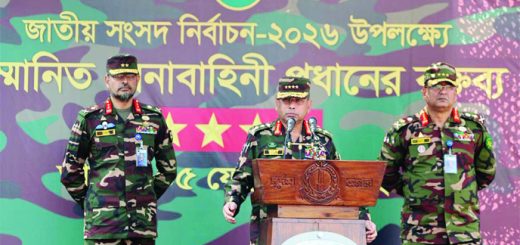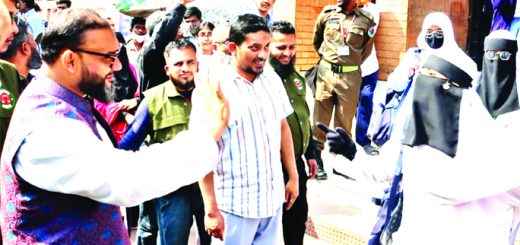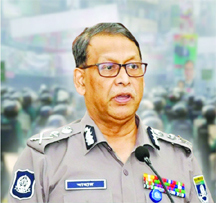Victory Day: Lessons from 1971 for today’s youth

Victory Day, celebrated annually on December 16, is a day of profound national pride for Bangladesh, commemorating the nation’s hard-fought victory over oppressive forces in the Liberation War of 1971. This day not only honors the sacrifices of those who fought for independence but also serves as a beacon of inspiration for today’s youth. The lessons from 1971 resonate deeply with recent events, such as the July-August 2024 mass uprising, showcasing the enduring spirit of resilience, unity, and the pursuit of justice among the youth of Bangladesh.
The Liberation War was marked by an extraordinary collective resolve, where people from diverse walks of life united to secure their freedom. Students, workers, intellectuals, and freedom fighters joined hands in defiance of an oppressive regime. This unity was a cornerstone of the nation’s victory, highlighting the power of collective action.
Similarly, the July-August 2024 mass uprising, driven largely by the youth, demonstrated the same indomitable spirit. Protesters demanded transparency, democratic reforms, and accountability in governance. Despite facing numerous obstacles, young people from across the nation rose above political and social divides to demand justice and change, echoing the unity and determination of 1971.
For today’s youth, both events offer valuable lessons: meaningful change is possible when people set aside differences and unite around a shared vision for a better future.
Youth played a pivotal role in 1971, spearheading protests, mobilizing communities, and contributing to the Mukti Bahini’s efforts. The courage and leadership of young people were instrumental in galvanizing the nation to stand against oppression.
Fast-forward to 2024, the mass uprising once again highlighted the transformative power of youth leadership. Young activists not only organized peaceful demonstrations but also utilized modern tools such as social media to amplify their voices and engage a wider audience. Their strategic use of technology, combined with grassroots mobilization, underscores the potential of the younger generation to lead in innovative and impactful ways.
The lesson here is clear: today’s youth must embrace their role as changemakers, using both traditional and modern methods to drive progress.
The resilience of the Bangladeshi people during the Liberation War remains one of the most enduring lessons of 1971. Despite overwhelming odds, they refused to bow to oppression, enduring immense hardships to achieve independence.
This same resilience was evident during the 2024 mass uprising, where youth-led protests faced significant challenges, including crackdowns and misinformation campaigns. Yet, the determination of the protesters did not waver, and their resilience led to meaningful dialogue and reforms.
For today’s youth, this resilience is a powerful reminder that perseverance in the face of adversity can lead to transformative outcomes.
The Liberation War was not only a fight for independence but also for the values of justice, democracy, and equality. The people of Bangladesh sought to create a nation free from exploitation, where every citizen could enjoy their fundamental rights.
In 2024, the youth-led movement reflected a similar commitment to these principles. Protesters demanded free and fair elections, accountability from leaders, and an end to systemic corruption. Their actions reinforced the idea that justice and democracy must be actively defended and nurtured by each generation.
This lesson urges today’s youth to remain vigilant in upholding democratic values and to challenge injustices wherever they occur.
Victory Day is not only a time to reflect on the past but also an opportunity to shape the future. The July-August 2024 uprising demonstrated that the dreams of 1971-a democratic, inclusive, and prosperous Bangladesh-are still relevant and achievable. However, the responsibility to realize this vision rests with the youth.
By prioritizing education, sustainable development, and technological innovation, young people can contribute to building a self-reliant and progressive nation. Furthermore, fostering a culture of unity and inclusivity will ensure that the sacrifices of 1971 are honored and that the aspirations of 2024 are fulfilled.
The lessons from 1971 and the recent events of 2024 are intertwined, offering a roadmap for today’s youth. Unity, resilience, and a commitment to justice are timeless values that have the power to transform societies.
Victory Day is not just a celebration of past achievements but also a call to action for the present and the future. By embracing the ideals of 1971 and learning from the courage and determination displayed in 2024, the youth of Bangladesh can continue to build a nation that is democratic, just, and thriving-fulfilling the dreams of the martyred intellectuals and freedom fighters who sacrificed everything for the country’s liberation.
(Shahariar Islam Sovon is Joint News Editor of The New Nation)








